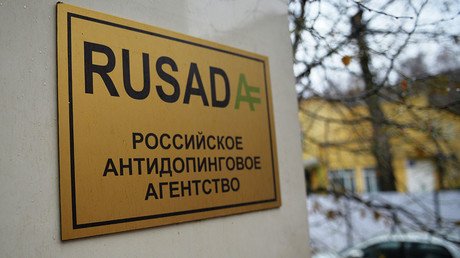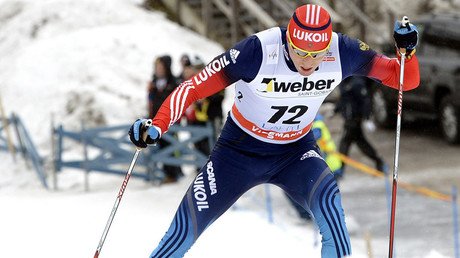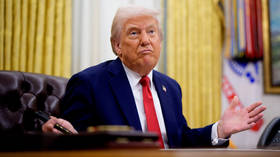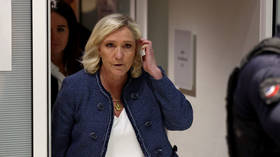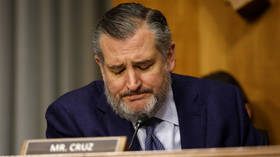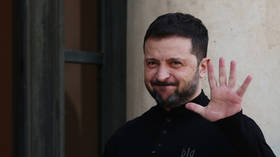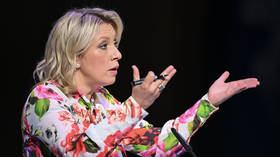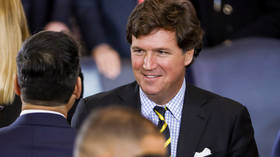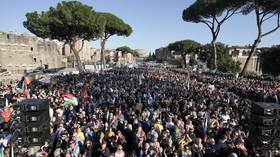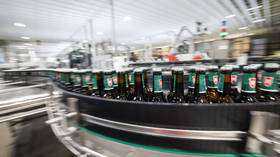WADA chief cites ‘hints & claims’ over Russian state-sponsored doping, 1 year after McLaren Report
President of the World Anti-Doping Agency (WADA) Craig Reedie has said that despite the organization still having no sufficient evidence a state-sponsored doping system in Russia ever existed, it does not mean the Russian Anti-Doping Agency (RUSADA) will be reinstated.
In an exclusive interview with RT at the sporting forum Play the Game in Eindhoven, the Netherlands, Reedie said that there are “hints” and “claims” that Russia was involved in state-sponsored doping, but stopped short of saying that it proves Russia’s guilt.
RT: You were quoted just recently as saying you thought politics had become a part of sport. What did you mean by that? Where do you see this happening?
Craig Reedie: It actually came from one of your correspondents in Seoul, who said to me, 'are there always politics in sport?' And I said politics seem to me to be a factor of everybody’s life. If I play golf on a Saturday, it seems unlikely to me that politics should stop at 1 o’clock and start again when I finish at 5 o’clock. Politics rules everybody’s life. So therefore they are bound to play a part in some way in practically everything we do, and sport is part of what we do. That is what I meant. I wasn’t being specific about the political situation.
RT: Now with relation to the WADA investigation into Russia, cases against 95 out of 96 people had been dropped, suspended as it is at the moment. Since the banning of Russian athletes at the Rio Games was based on the McLaren report, and since there have been questions raised about some of the issues raised in the McLaren report, is it fair that those Russian athletes didn’t go to the Games based on potential flaws in that investigation?
CR: They [the 95 athletes] haven’t been declared guilty or let off or whatever. All that has happened is that in the evidence of the website, there was not sufficient evidence to pursue an anti-doping rule violation. That decision is taken principally by the international federation that’s involved. But as we stand here, if any of these cases will be taken up by the federation, that’s fine; we do have a right to further appeal them if we want, but we agreed with original discussion. Therefore, the athletes that did not take part in the Rio Games, that decision was taken by the different international federations who themselves may have different rules. Track and field took out the whole of the track and field team. Rowing took out some rowers. It’s an unequal exercise.
RT: I’m glad you said unequal, because my next question was going to be about fairness. If it does turn out that there are these holes in the McLaren report, and that ban in Rio was based on that report, how is that fair on those athletes who trained, committed their whole lives to that point; what have they missed out on?
CR: Remember, you’re now blaming McLaren for what was done or not done by an international sports federation. They would consider the situation quite clearly as far as the 95 cases are concerned. As far as the decision in Rio is concerned, it will be done on the existing anti-doping rules, at that stage. They would be from different [rules], that’s what I mean by unequal; rowing could have different rules from weightlifting, different rules from wrestling and what not. That’s why there was a variety. McLaren’s terms of reference were to decide whether there was an institutionalized conspiracy or not and that’s what he did. He wasn’t asked to produce details on anti-doping rule violations. If evidence subsequently appears, then it might make it much easier for the international federations to decide to go ahead against particular athletes or not.
RT: The IAAF (International Association of Athletics Federations) has said it will extend the ban on Russian athletes competing in international tournaments. What do you make of that decision?
CR: IAAF and the IPC (International Paralympic Committee) both have their own roadmap for re-establishment of competition for their athletes and in both cases compliance of the Russian Anti-Doping Agency is a condition. So all they’ve done is worked to their roadmap and that’s why we work enthusiastically to try to make RUSADA compliant.
RT: Is there any way RUSADA would be reinstated without Russia saying that it did take part in state-sponsored doping?
CR: Not at the moment. I work with them on a very regular basis to try to resolve this but we haven’t done it yet. I wonder why. It is because they [Russia] keep saying there was no state-sponsored doping. And, the motion of the other evidence hints, claims that there was.
RT: It hints and it claims – it doesn’t prove.
CR: Give them some time. Proof is there in the McLaren report.
RT: Are you expecting to be able to prove wholeheartedly that Russia was involved in state-sponsored doping?
CR: I think if you look at what McLaren said, there is sufficient evidence to believe that was the case. And he is coming here for the conference, so you can ask him yourself.
READ MORE: IOC disqualifies 4 Russian skeleton athletes, strips Russia of more Olympic medals
